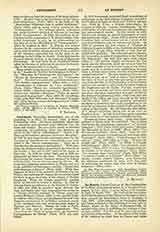

Le Loutre, Louis-Joseph, missionary to the Micmac Indians and Vicar-General of Acadia under the Bishop of Quebec, b. in France about 1690; d. there about 1770. He was a conspicuous figure in Nova Scotia in the middle of the eighteenth century, and his portrait as drawn by some writers lends color to the charge that history is often a conspiracy against truth. Anxious to justify the memorable deportation of the Acadians in 1755, partisan annalists and chroniclers of the period represent Le Loutre as the evil genius and tyrant of the Acadians the sworn enemy of the English, and a pastor who threatened with excommunication and with massacre by his Indians all who favored measures of reconciliation with the English Government. Better accredited historians, however, such as Haliburton, acknowledge that this picture of the abbe is more caricature than portrait. The truth appears to be that Le Loutre was a typical French missionary of forceful character and initiative, with a natural desire, so long as the matter was in dispute, to hold the Acadians to their allegiance to France; that he showed himself more than once an excellent friend of individual Englishmen in their time of need; and that his accompanying the Micmacs on several expeditions against the English, expeditions which he had done his best to prevent, was for the sole purpose of restraining the cruelty and vengeance of his Indian flock. A letter sent in 1757 by the Bishop of Quebec to the Abbe of l’Isle-Dieu proclaims Le Loutre to have been “irreproachable in every respect, both in the functions of his sacred ministry and in the part he took in the temporal affairs of the colony”. Captured by the English while on the way to France, Le Loutre was held prisoner by them for some years in the Isle of Jersey; on his release he returned to France, where a few years later he died.
ARTHUR BARRY O’NEILL

